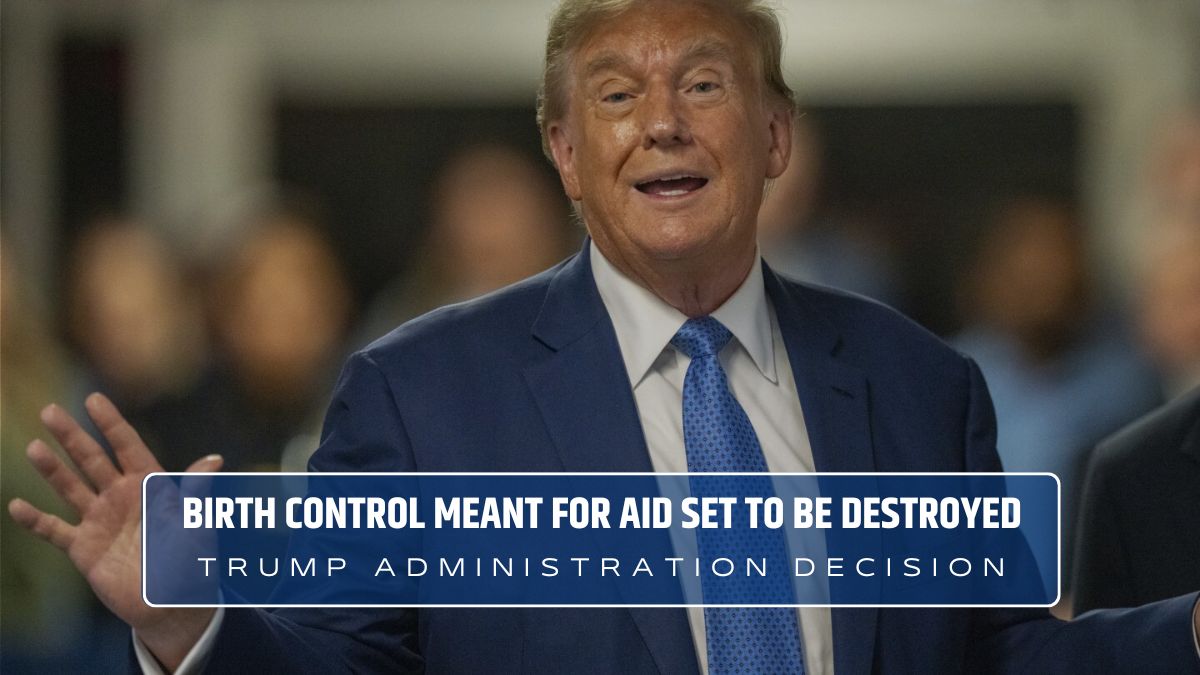The Trump administration is preparing to destroy a massive stockpile of U.S.-funded contraceptives worth approximately $9.7 million, despite urgent appeals from international agencies, lawmakers, and humanitarian groups to halt the plan. The supplies, stored in a warehouse in Belgium, were originally procured under USAID’s Global Health Supply Chain Program and were intended for distribution in developing countries, particularly in Africa.
What’s Being Destroyed?
According to internal accounting and congressional sources, the supplies include:
- Over 50,000 intrauterine devices (IUDs)
- Nearly 2 million doses of injectable contraceptives
- About 900,000 implantable contraceptives
- Over 2 million packets of oral birth control
These supplies could have supported contraception for 650,000 women for one year or 950,000 women for up to a decade, according to experts at the Guttmacher Institute.
Why Are They Being Destroyed?
A State Department spokesperson said the destruction is tied to the administration’s reinstatement of the Mexico City Policy—a rule blocking U.S. aid to organizations involved in abortion-related services or counseling. Though none of the contraceptives are classified as abortifacients under medical definitions, some anti-abortion groups argue they could prevent implantation, a claim widely disputed by scientists and doctors.
The administration also cited the end of USAID contracts initiated during the Biden era and claimed that only a limited number of items were approved for destruction. No condoms or HIV treatments are being destroyed, officials added.
Diplomatic and Humanitarian Outcry
The decision has sparked intense backlash:
- Belgium said it had “explored all possible options to prevent the destruction”, including temporary relocation.
- U.N. Population Fund (UNFPA) and International Planned Parenthood Federation (IPPF) offered to take the supplies.
- MSI Reproductive Choices offered to pay for shipping and repackaging.
UNFPA confirmed that it contacted USAID’s contractor, Chemonics, about acquiring the supplies but received no response.
Lawmakers Object
Bipartisan opposition is growing. Senators Lisa Murkowski (R-Alaska) and Jeanne Shaheen (D-New Hampshire) urged Secretary of State Marco Rubio to reverse the decision. Shaheen and Sen. Brian Schatz (D-Hawaii) have introduced legislation to prevent the destruction of the supplies.
Critics are especially alarmed because the contraceptives have long shelf lives—some expire no earlier than 2027—and could be used in regions facing contraceptive shortages and high maternal mortality rates.
Logistics and Cost
The actual destruction is expected to cost $167,000, according to the State Department. While USAID claims it has saved $34.1 million by canceling other orders, critics argue this is a case of “ideology over efficiency.”
Veolia, a French waste management firm that has previously handled expired contraceptives, said it is not contracted to destroy these specific supplies. Former USAID officials estimate that complete incineration would take up to six months unless multiple facilities are involved.
Bigger Picture
Former USAID insiders say this may be only the beginning. As the Trump administration moves to dismantle the U.S. foreign aid infrastructure, they fear more disruptions, including the spoilage of $480 million in food aid sitting at ports and warehouses.
Former inspector general Paul Martin, who was dismissed after raising concerns about the agency’s downsizing, warned this destruction is part of a larger pattern:
“This is not a mistake. It’s a preview of the kind of self-inflicted waste we’re going to see under this rollback.”
Human rights groups say the decision undermines global public health efforts at a time when access to contraceptives is more important than ever. As MSI’s Sarah Shaw put it: “The complete dismantling of the world’s largest donor for international family planning has been a catastrophe.”
FAQs
What contraceptives are being destroyed?
IUDs, injectables, implants, and birth control pills worth $9.7 million.
Why are they being destroyed?
Due to the Mexico City Policy and terminated USAID contracts.
Could the supplies have been used elsewhere?
Yes, groups like UNFPA and IPPF offered to take them.
Is there bipartisan opposition to this?
Yes, both Republican and Democratic senators objected.
How long until the supplies expire?
Most items are marked with expiration dates into 2027.












